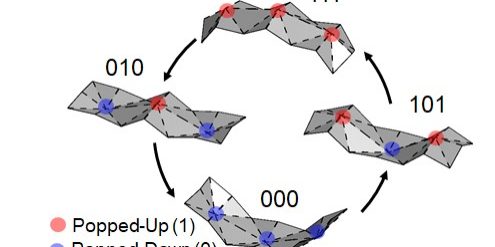Conventional computing hardware represents information as ones and zeros, depending on the state of electronic transistors. This creates artificial bottlenecks in the flow of information processing by first requiring that environmental loads be converted into an electronic state and second by routing the information to centralized computers for processing. Researchers from Wright-Patterson’s Air Force Research Laboratory, along with collaborators from the University of Pennsylvania, University of York, and Northwestern University, argue in a recently published Nature perspective paper that new and unconventional ways of representing information in materials could be the key to removing these bottlenecks and redistributing this computing burden.

Source: https://media.defense.gov/2021/Oct/07/2002869983/-1/-1/0/211007-F-GH181-0001.JPG
October 26, 2021 | Originally published by Air Force Research Lab on October 7, 2021

